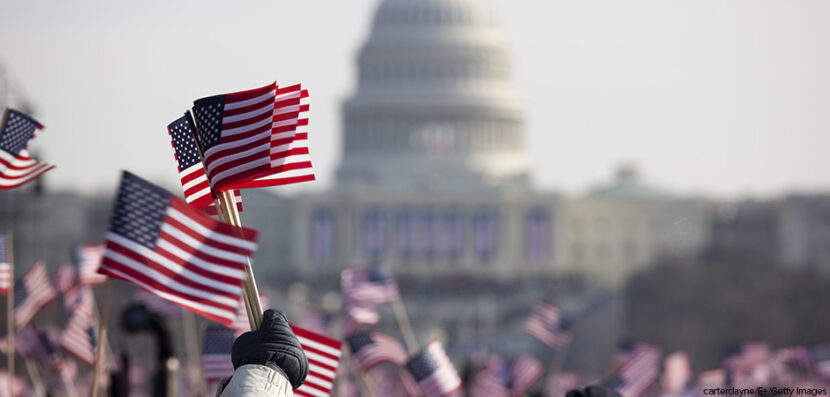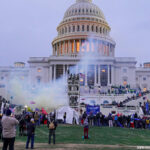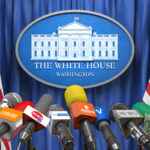- Current Events Nebraska Rejects Winner-Take-All Proposal
- Citizenship Voting Under Age 18
- Citizenship Citizenship in Action
- Democratic Party Biden’s and Trump’s Recent Primary Results
- Elections Trump and Biden Win South Carolina and Michigan Primaries
- Democratic Party Trump and Biden Win Big in Early February Contests

Inauguration Day 2021
Perhaps no single event illustrates democracy as much as the peaceful transfer of power from one president to another. On January 20, 2021, just before noon, Joseph R. Biden was sworn in as the 46th president of the United States. For many reasons, this was an unusual ceremony, unlike any other inauguration in history. Here, we take a closer look at this historic occasion.
Shattering the Glass Ceiling
This inauguration was historic because it marked the swearing-in of Kamala Harris as the first woman, and the first woman of color to serve as vice president. Fittingly, Harris was sworn in by Justice Sonia Sotomayor, the first Latina to ever serve on the U.S. Supreme Court. Harris was escorted to the inauguration by Eugene Goodman, the police officer who resisted members of the pro-Trump mob who entered the U.S. Capitol building on January 6. Goodman drew the mob away from Senate chambers, where lawmakers were sheltering. A bill has been introduced in Congress to award Goodman the Congressional Gold Medal.
The Importance of Unity
The theme for the inauguration was “Our Determined Democracy: Forging a More Perfect Union.” Biden’s inaugural address, which he delivered just after being sworn in, focused on healing the country in the wake of the coronavirus crisis, and the dangers of political divisiveness and unrest. In his first speech as president, Biden emphasized the importance of putting our differences behind us and starting again. Then National Youth Poet Laureate Amanda Gorman recited her poem “The Hill We Climb.”
Increased Security
In the wake of the January 6 attack on the U.S. Capitol, security for the inauguration was dramatically heightened. Downtown streets were closed to the public, and 25,000 National Guard troops were mobilized. Bridges and downtown Metro stations were closed, while several downtown bus routes were suspended. All of this helped ensure that the transfer of power occurred safely.
A Virtual Inauguration
Usually, inauguration celebrations draw crowds of hundreds of thousands of people. But because of the COVID-19 virus, attendance at the event was extremely limited. Only members of Congress could attend in person, along with one guest each. (The full membership of Congress is usually given 200,000 tickets to distribute among constituents.) Everyone underwent temperature checks, wore a mask, and followed social distancing rules.. Instead of the usual crowd, the National Mall in front of the U.S. Capitol was filled with 200,000 flags to symbolize the 200,000 Americans who could not attend the ceremony due to the virus. Because of these precautions, President Biden’s inauguration was smaller than any in history except for President Franklin Roosevelt’s fourth inauguration–which was limited due to his poor health and World War II.
In keeping with tradition, former presidents Barack Obama, Bill Clinton, and George W. Bush attended the inauguration in person, along with outgoing vice president Mike Pence. Former president Donald Trump, however, chose to fly to Florida the morning of the inauguration rather than attend the inauguration.
Other traditional inaugural events, such as the congressional luncheon, were cancelled. The usual inaugural balls were replaced by a primetime television special called Celebrating America. It was hosted by Tom Hanks. The performances scheduled for this special included Lin-Manuel Miranda, John Legend, Demi Lovato, Bruce Springsteen, and Justin Timberlake.


